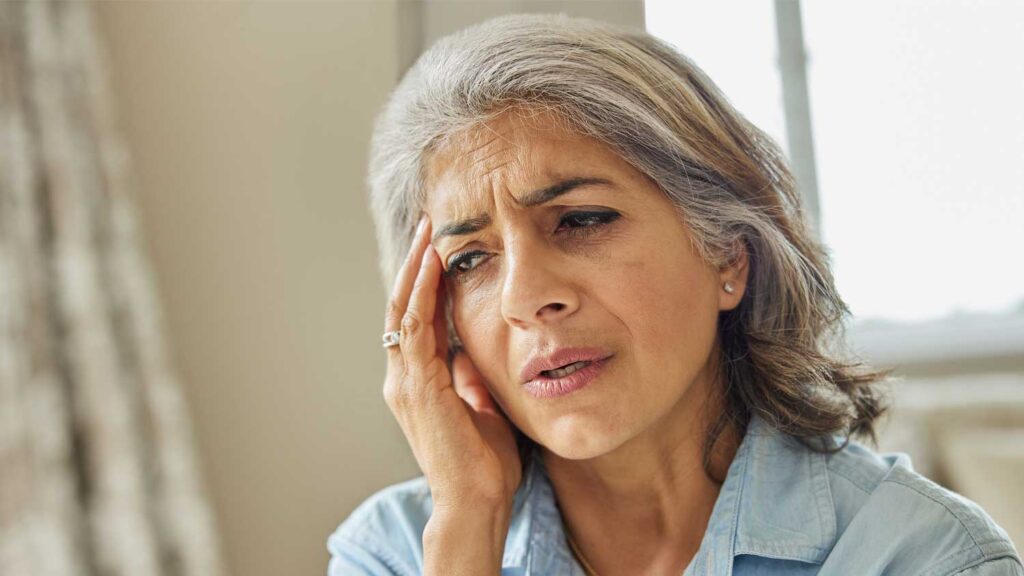What is a hot flash?
Hot flashes are exactly what they sound like. They’re uncomfortable episodes that can last from 30 seconds up to five minutes and include a few different symptoms like a faster heart rate, warm skin, sweating, anxiety and even cold chills afterward. Some people may experience mild symptoms every once in a while, but others may have more frequent or severe hot flashes that can be a real pain. They can even interrupt everyday activities. And the more they happen, the more likely they are to result in fatigue and irritability.
What causes hot flashes?
The exact cause of hot flashes is unknown, but they’re thought to be connected to hormone changes that happen before, during and after menopause. They can also be brought on by different triggers like:
- Spicy food
- Alcohol
- Caffeine
- Restrictive clothing
- Smoking
- Stress
To stay on top of possible triggers, try keeping a journal of your hot flashes with details on how your symptoms start. It can help you figure out patterns and avoid things that make the hot flashes worse (even if avoiding stress may feel like an impossible task).

How should you manage hot flashes?
Give yourself a head start by wearing breathable clothes in layers that are easy to remove. Once the hot flash strikes, cooling yourself down with ice packs, a cold washcloth on your neck or even a portable fan can make a huge difference. If your hot flashes are making it hard to sleep, small changes like a cooling pillow or lightweight bed sheets could do the trick.
However, these simple solutions may not be enough for everyone. If hot flashes are making daily activities hard, it may be time to talk to your doctor. They can help you find medications and offer guidance on over-the-counter supplements, which can sometimes have unintended side effects. For example, evening primrose oil is a common supplement used to treat hot flashes, but it can impact blood thinner medications. Check with a healthcare professional to be safe.
For an option that doesn’t involve medication or supplements, acupuncture could help. In 2011, one study found that those who had acupuncture experienced fewer symptoms of menopause (like hot flashes) compared to people that had a placebo acupuncture procedure. Again, be sure to consult your doctor before trying out new methods for managing your hot flashes.
Hot flashes are a tough part of menopause, but they don’t have to take over your life. Hopefully these tips, along with your doctor’s guidance, will help you stay cool and happy.















